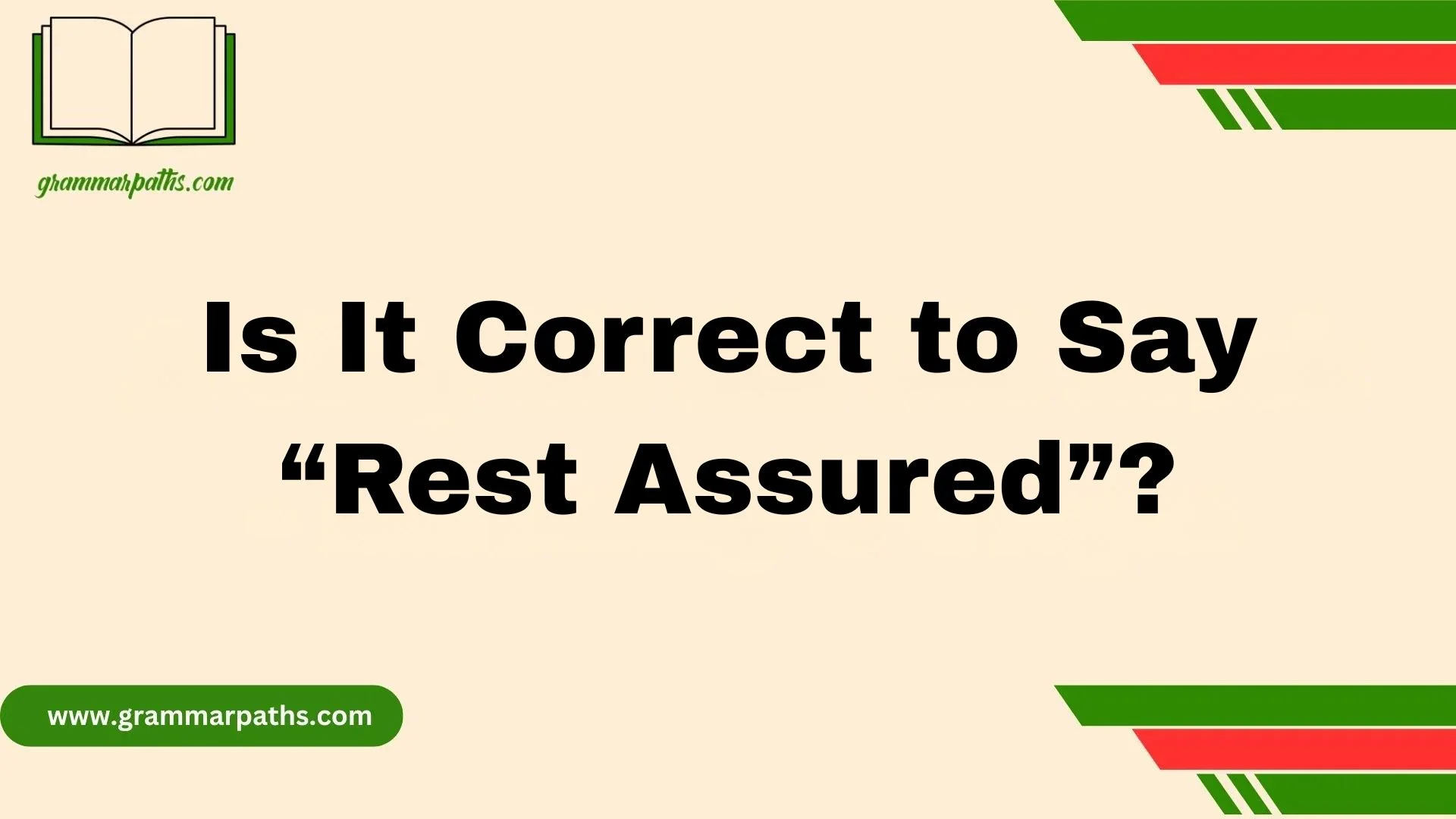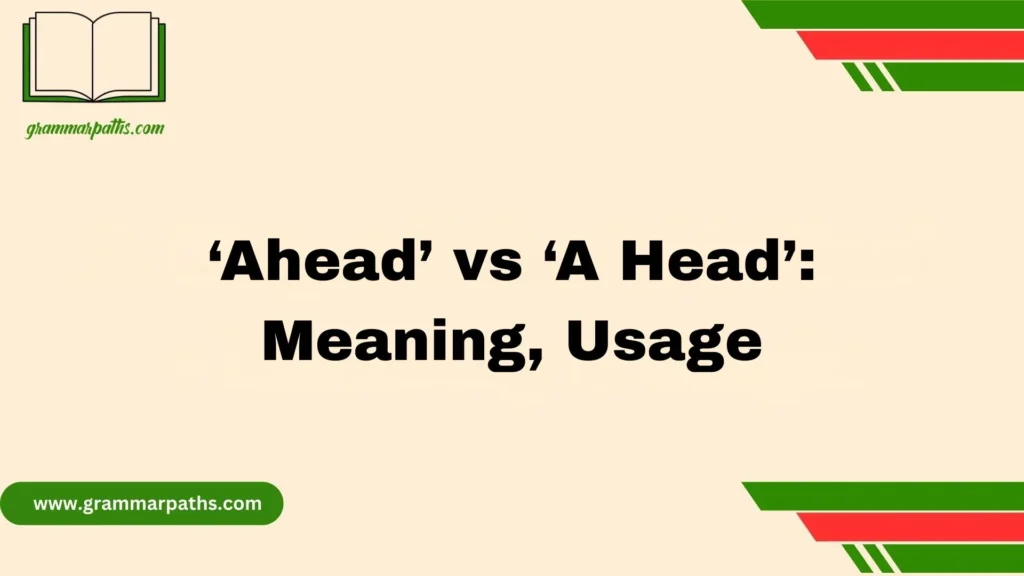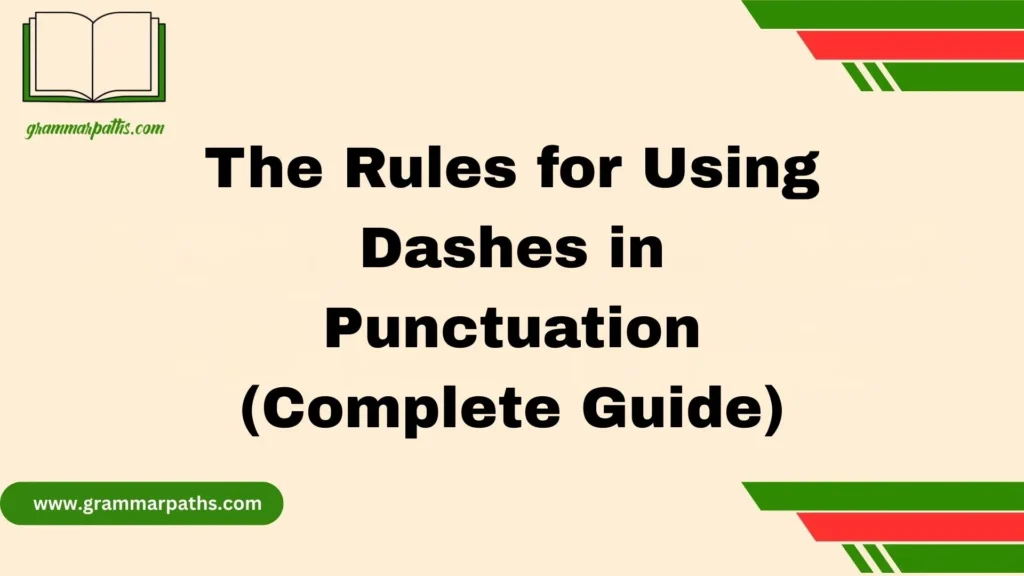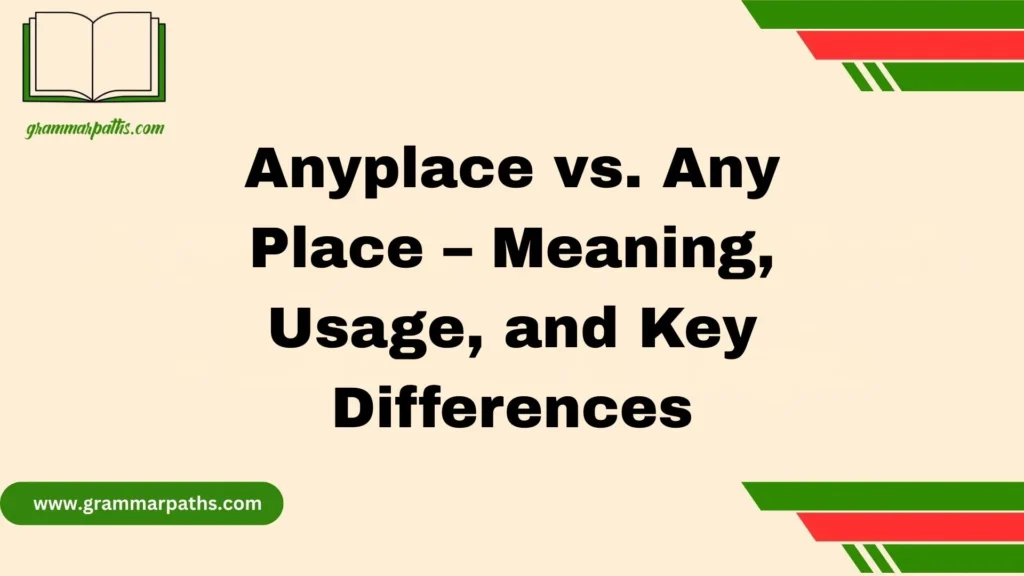English has many quirky language expressions that feel like puzzle pieces waiting to be understood. Is It Correct to Say “Rest Assured”? Yes—it is grammatically correct and widely used in both movies and books. When I first heard it, it looked straightforward but had layers of meaning that often surprised native speakers. Many learners at home and abroad stumble over this idiomatic phrase, wondering if it’s valid or incorrect. From my personal experience, this expression is more than just grammar rules; it’s a polite, reassuring way to tell someone they can feel comfortable in conversation or writing.
When you say “rest assured,” you’re giving certainty and comfort, letting someone know there’s no doubt. I once had a friend worried about an upcoming exam. I told them, “Rest assured, you’ve studied hard, and you’ll do great.” It felt like a better choice than simply saying “Don’t worry.” This phrase adds politeness, works in different contexts, and is often used in commands, statements, or even during a police investigation, where officers say, “Rest assured, we’re doing everything we can.”
From a grammar view, “rest” functions as a soft imperative, meaning it’s a directive without sounding like a demand. You can modify its syntax or structure, but its tone and formality remain the same. I’ve used it in meetings, projects, and even posts, like saying, “Jonathan will complete the event on time, rest assured.” This expression gives assurance, works in various scenarios, and is a good option for better phrasing in communication.
Understanding the Meaning of “Rest Assured”
The phrase “rest assured” essentially means “you can be confident” or “do not worry.” It is an idiomatic expression used to reassure someone that something is guaranteed or under control.
Breaking Down the Phrase
- “Rest” means to relax or stop worrying.
- “Assured” is the past participle of “assure,” meaning guaranteed or certain.
Put together, “rest assured” suggests that the listener can relax because the speaker guarantees the outcome or situation.
Real-Life Meaning and Use
When someone says:
“You can rest assured that your package will arrive on time,”
they mean:
“You don’t have to worry; the package is definitely going to arrive as promised.”
This phrase is frequently used to build trust and provide comfort in both formal and informal settings.
Historical Origins of “Rest Assured”
The phrase “rest assured” dates back several centuries. Its roots lie in 17th-century English when idiomatic expressions involving “rest” (such as “rest easy”) were commonly used to mean relaxing without worry.
The word “assured” evolved from the Latin assurare, meaning “to make certain.” When combined, “rest assured” became a formal way to tell someone they could stop worrying because everything was guaranteed or safe.
Evolution into American English
The phrase made its way into American English through British colonization and has since become a staple of professional and everyday communication in the United States. You’ll find it regularly used in:
- Business emails
- Customer service communications
- Legal documents
- Marketing materials
Why “Rest Assured” Is Grammatically Correct
Many English learners and even native speakers get confused about the grammar of “rest assured.” Here’s why it’s correct:
- “Rest” functions as an imperative verb here, meaning “relax.”
- “Assured” acts as a past participle adjective describing the subject.
When you say, “You can rest assured,” the meaning is: “You can relax because you are assured (guaranteed).” It is similar to other phrases like:
- “You can be counted on.”
- “You can be trusted.”
Why Adding “Be” Is Incorrect
Some mistakenly say “be rest assured” (e.g., “You can be rest assured”), but this is grammatically wrong. Since “rest” already functions as a verb here, adding “be” creates redundancy.
Incorrect:
- “You can be rest assured we’ll handle it.”
Correct:
- “You can rest assured we’ll handle it.”
Common Misuses and Confusions Around “Rest Assured”
Even fluent English speakers sometimes misuse this phrase. Let’s look at common mistakes:
1. Adding Auxiliary Verbs Unnecessarily
- Wrong: “You can be rest assured.”
- Right: “You can rest assured.”
2. Using “Rest Assure” Instead of “Rest Assured”
Since “assured” is the correct past participle, dropping the “d” makes it incorrect.
- Wrong: “You can rest assure me.”
- Right: “You can rest assured I’ll be there.”
3. Misplacing the Phrase
- Awkward: “Rest assured we will the project finish on time.”
- Better: “You can rest assured that we will finish the project on time.”
Enhancing Your Language: How to Use “Rest Assured” Properly
To sound natural and correct when using “rest assured,” follow these guidelines:
Position in the Sentence
- It usually follows modal verbs like can, may, or should.
- Often placed before a clause explaining what is guaranteed.
Examples:
- “You can rest assured that your payment is secure.”
- “Clients may rest assured their privacy is protected.”
When to Use It
- Business or customer service: To reassure clients.
- Comforting someone: When they feel uncertain.
- Confirming promises: In professional or legal communication.
Tone
This phrase has a formal or semi-formal tone. It’s perfect for business settings, written documents, or professional conversations. In casual speech, you might use alternatives like:
- “Don’t worry.”
- “You’re good.”
- “It’s all taken care of.”
Expressions Similar to “Rest Assured”
Here are alternative phrases with similar meanings:
| Expression | Meaning | Usage Level | Example Sentence |
| Rest easy | Don’t worry | Casual | “You can rest easy knowing we’ve got it handled.” |
| Take it easy | Relax, don’t stress | Informal | “Take it easy, everything is fine.” |
| Have confidence | Trust in something | Neutral | “You can have confidence in our service.” |
| Sleep well | Feel safe and reassured | Informal | “Sleep well knowing your car is secure.” |
| Feel secure | Be without fear or doubt | Formal/Neutral | “You can feel secure with our protection plan.” |
Examples of “Rest Assured” in Everyday Communication
Using real examples can help you understand how to apply the phrase correctly:
Business Context
- “You can rest assured that your order will be shipped within 24 hours.”
- “Investors can rest assured their funds are managed responsibly.”
Customer Service
- “Please rest assured that we are working on resolving your issue.”
- “You may rest assured that your data is safe with us.”
Personal Communication
- “Rest assured, I’ll take care of everything while you’re away.”
- “You can rest assured that your dog will be safe with us.”
Tips to Avoid Common English Pitfalls When Using “Rest Assured”
To master this phrase and avoid sounding incorrect:
- Never add ‘be’ – The correct form is simply “rest assured.”
- Use it to reassure – Avoid using it for other meanings.
- Check your sentence placement – Place it naturally within your message.
- Match tone to context – Use formal alternatives in professional settings.
- Practice with examples – Repetition helps with fluency.
Case Study: How Businesses Use “Rest Assured” to Build Trust
Many US companies use this phrase to strengthen customer relationships. For instance:
- Amazon: Often reassures customers in emails – “Rest assured, your refund is being processed.”
- Banks: Use it to confirm security – “You can rest assured that your account is protected with advanced encryption.”
- Healthcare providers: Calm patients – “Rest assured that your health information is fully confidential.”
By using this phrase correctly, businesses increase credibility and comfort among customers.
Conclusion
In short, “rest assured” is a grammatically correct, polite, and reassuring phrase that adds certainty and comfort to English conversations and writing. It works perfectly for both learners and native speakers, fitting into formal and informal contexts. Whether you’re calming a friend, promising the completion of a project, or giving assurance in a serious situation, using “rest assured” is always a good choice. Its idiomatic richness and flexible usage make it a timeless expression in the English language.
FAQs
1. Is “rest assured” a formal phrase?
Yes, it’s commonly used in formal writing and professional conversations, but it also works naturally in informal speech.
2. Can learners of English use “rest assured” confidently?
Absolutely. It’s a straightforward phrase that helps learners sound polite and confident without worrying about grammar mistakes.
3. Is there any difference between “be assured” and “rest assured”?
“Be assured” is less common and slightly more direct, while “rest assured” feels gentler, offering comfort and certainty.
4. Can I use “rest assured” in writing?
Yes, it’s perfect for emails, posts, reports, or even books, making your message sound reassuring and clear.
5. What are some alternatives to “rest assured”?
You can say “be certain,” “have no doubt,” “you can trust,” or “I assure you”, depending on the tone and context of your message.

Emma Brooke is a passionate language expert and contributor at GrammarPaths.com, where she helps learners navigate the complexities of English grammar, idioms, and effective writing. With a strong academic background and years of teaching experience, Emma excels at turning tricky grammar rules into simple, practical lessons that readers can easily grasp.












